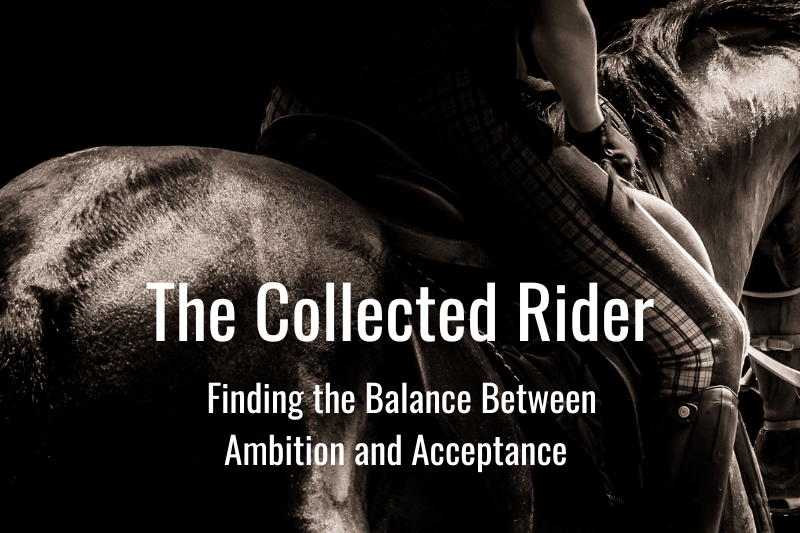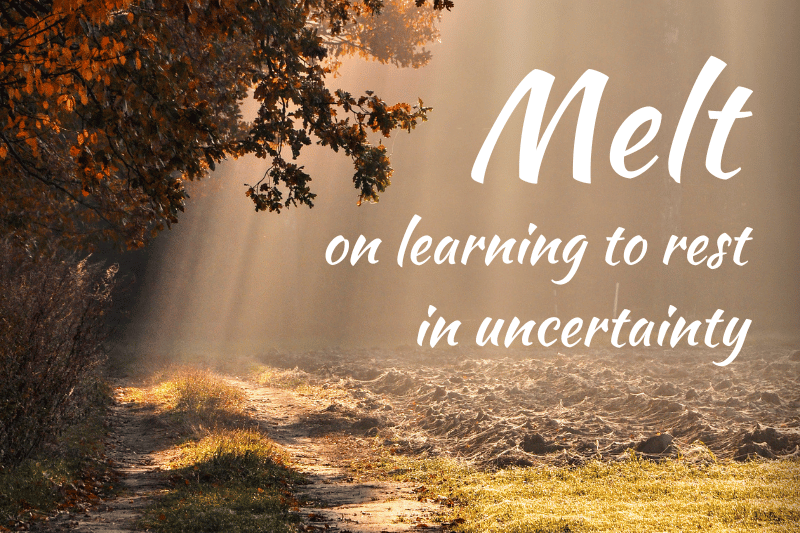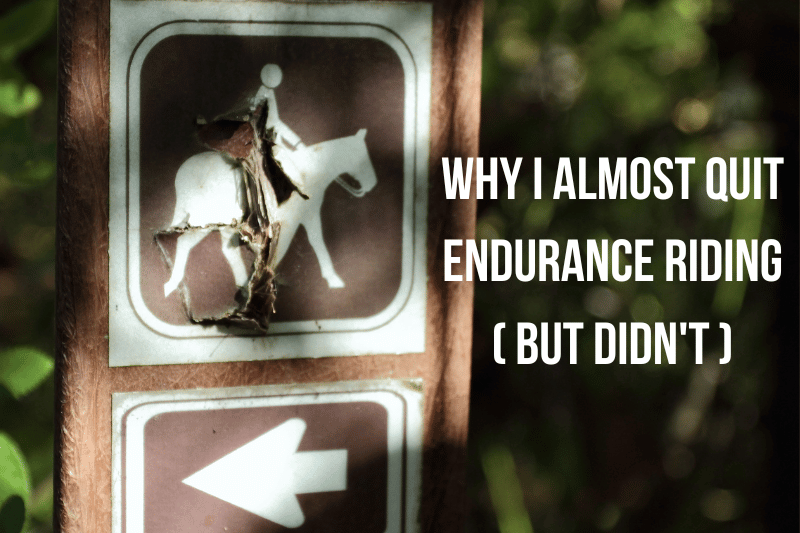Ledger has a bone chip in his left hind fetlock.
It’s old – probably the result of an over-enthusiastic step as a youngster – and causing no issues. Apparently, many horses have similar chips. These chips might limit future performance, or they might remain happily suspended in tissue, innocent and unrecognized for a lifetime.
In Ledger’s case, the vet’s instructions are to use him as normal and try not to worry.
Try not to worry.
My first reaction was to worry that I would worry. Was I destined spend every ride listening hard, poised in two-point, straining to detect a hint of lameness? To be nervous at every vet check?
But Ledger is dead sound, and he loves to move.
“Don’t borrow trouble,” I told myself.
“Nothing you do with him will make it better or worse,” the vet told me. “Ride him and don’t worry.”
And you know what? I’ve been able to.
I’m more surprised than anyone. After all, I’m hoping to finally have a good competition year. Shouldn’t I be shattered by this threat?
Riding horses is not a sport for dabbling. It requires commitment. If I’m not willing to go all in, I’m going to end up sitting it out. So how can I set myself up for success without setting myself up for a fall?
We all face this dilemma, whether we acknowledge it or not.
After all, nothing has changed: Before I knew about Ledger’s bone chip, it was there. Even if it wasn’t, every day bristles with risk. He could get caught in a fence. He could colic. He could get loose and lost on the trail.
For that matter, I could fall and be injured. I could get in a car accident or be diagnosed with cancer. My house could catch fire. I could lose my job, or my spouse, or have to sell the horses.
We don’t like to think about it, but life itself – including the microcosm that is my plan with Ledger – is at its core uncertain.
I am reminded of the Buddhist concept of aniyta, or impermanence. Everything transforms, decays, reconfigures. As much as we desire stability, the only constant is change. Everything we love, and everything we resent, will eventually be lost to time.
I’m learning from these rough years (when I did, in fact, get seriously injured, burn my house, and endure a deep professional wound) that I can still be okay.
Over seven seasons of failing at endurance riding, I have succeeded in recovering my love of simply riding. I’ve rediscovered the pleasure of a quiet hack, and of training my horses beyond the basics.
As much as I want to do well in endurance again, I know my contentment doesn’t depend upon it. I carry my wishes in open hands. Some will blow away, but new ones will land. I needn’t waste energy by holding them tightly.
Life is meant to be ridden like a dressage horse in the ring, balanced astride the power of aspiration. Focused. Effective. But also ready to adjust at the slightest cue. To halt or bend or pirouette, ever as prepared to pivot as we are to canter on.
Don’t get me wrong. I will still be terribly disappointed if something cuts my endurance season down. I will sit in the tackroom doorway and stare into space. I will hug Ledger’s neck and cry.
But I will not be devastated. I know already, from facing the specter of the bone chip, that I will keep my seat. Stay centered. Because there is something deeper, some solid planet floating in my inner universe of uncertainty, that is more reliable than ambition.
I don’t quite have a name for it yet. Perhaps Acceptance. Whatever it is, it’s a welcome byproduct of repeated lessons in letting go.
I still seek, still dream, still strive. But I am finally learning to find repose between soft hands and gentle heels, where I can both guide my experience and stick the saddle when it swerves.
To live in collection is to release the illusion of control, the delusion that holding tight to our ambitions will somehow keep them safe. Instead of relying on what we desire for peace, we manage our response to what is. At the end of the day, we all must learn to rest in the cradle of uncertainty.
“It is better to travel well,” said the Buddha, “than to arrive.”
That is the wisdom of the willing, the learning, the collected rider.



